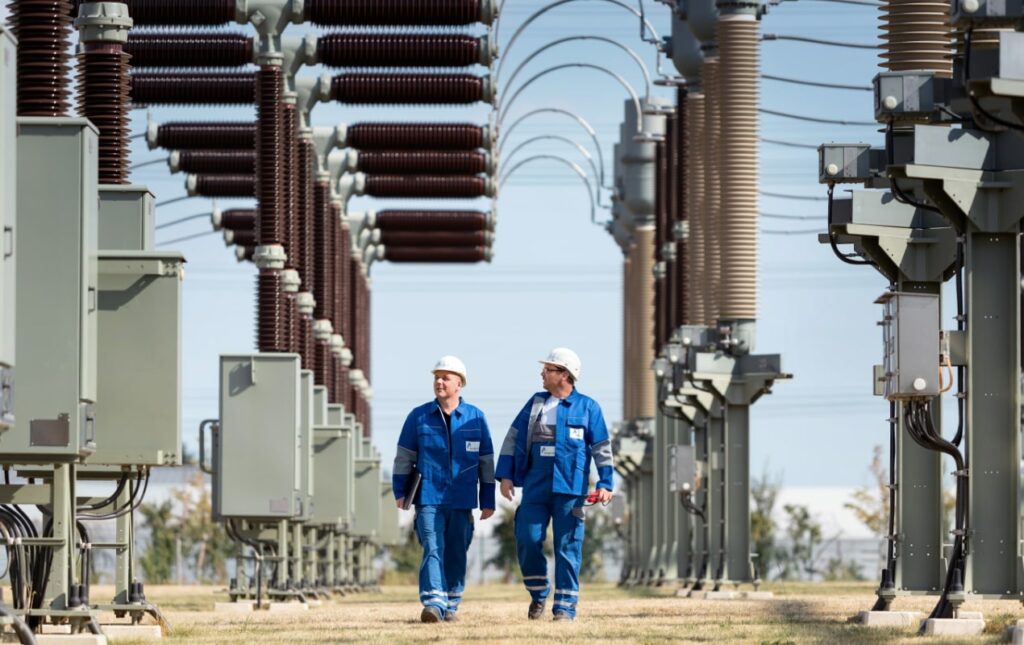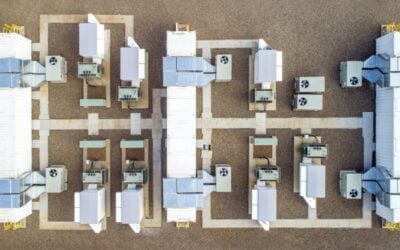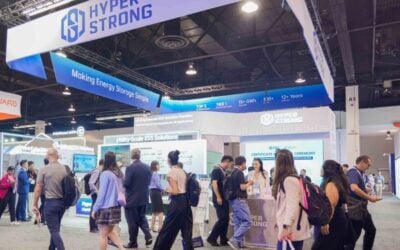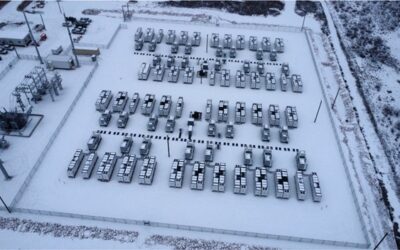
The regulator in Germany has given the green light to transmission system operator (TSO) Amprion’s five ‘decentralised grid booster’ BESS projects, totalling 250MW.
The projects were approved as part of the two-year planning cycle of Germany’s Network Development Plan (NEP) 2023-2037/45, system integrator Fluence’s senior manager for policy and market development Lars Stephan said on Linkedin.
Amprion, one of four TSOs in Germany, first announced plans to deploy ‘decentralised’ grid booster BESS projects across its network in May last year. The grid booster programme in Germany was launched in 2019, and involves the TSOs deploying large-scale battery energy storage system (BESS) at critical nodes to stabilise the grid, reduce interventions and reduce system costs.
“Grid boosters are an innovative tool of grid operators to better utilise their existing power lines by used large batteries as an airbag for the power grid. In case there is a failure on the grid, the batteries will stabilise it instantly and thereby allow the grid to be operated at a higher utilisation to begin with,” Stephan said in his post.
Try Premium for just $1
- Full premium access for the first month at only $1
- Converts to an annual rate after 30 days unless cancelled
- Cancel anytime during the trial period
Premium Benefits
- Expert industry analysis and interviews
- Digital access to PV Tech Power journal
- Exclusive event discounts
Or get the full Premium subscription right away
Or continue reading this article for free
Amprion’s projects will be built at the 110kV level of the electricity network in Bavaria-Swabia and the Rhineland. When it announced them last year it claimed they were the first such Grid Booster projects anywhere to be done at the smaller-scale.
Fluence itself is building grid boosters in Germany, 200MW for TSO TenneT, across two sites, and a single-site 250MW system for TSO TransnetBW.
In his post, Stephan explained that the calculations underlying the latest approval were arrived at in a different way to how they were previously done. Before, the TSOs and the regulator would run their cost-benefit analysis and come up with different results, sometimes leading to grid booster projects being declined.
This time, the regulator agreed to approve the projects “as long as the grid booster functionality is not more expensive than the benefit it creates in terms of congestion relief”.
The “functionality” of the projects have been set at €318 million (US$346 million) for Bavaria-Swabia and €275 million (US$300 million) for Rhineland’s, and Amprion will now figure out what the costs of the assets are and what additional market-based values can be added to them. Amprion has started a market consultation for the projects, which it hopes to have online by 2026.
Alongside Germany, grid booster projects are also being deployed in New Mexico (USA), Latvia, Lithuania and Brazil, while some are eyeing up the technology as a potential new area for energy storage to play in the UK market.
In general, TSOs are not permitted to own energy storage assets. However, direct TSO ownership of the BESS is in principle possible in Germany, Stephan added, and direct ownership was deemed the most cost-effective option compared to third-party ownership.
See Lars Stephan’s full Linkedin post here and read the full latest NEP here.





